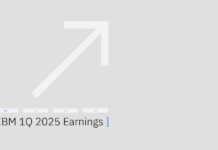France’s Aversion to Coalitions Puts New Government at Risk of Early Collapse
In a significant development that has caught the attention of political analysts and citizens alike, France’s longstanding aversion to political coalitions has once again come to the forefront. The recent snap election held on July 9, 2024, has resulted in a political impasse, with three roughly equal blocs emerging but showing an unwillingness to compromise or form what some leaders term "unnatural alliances." This scenario threatens the stability of any new government, increasing the risk of early collapse.
For more detailed information, refer to The Guardian’s article here.
The Election Outcome
The snap election was called amidst growing public dissatisfaction and escalating political tensions. The result has been a fragmented parliament, with no single party gaining a clear majority. The three dominant blocs are:
- The Centrist Bloc: Led by President Emmanuel Macron’s La République En Marche! (LREM), which has seen a decline in its support base but still holds significant influence.
- The Right-Wing Bloc: Dominated by Marine Le Pen’s National Rally (RN), which has capitalized on nationalist and anti-immigration sentiments.
- The Left-Wing Bloc: Comprising a coalition of socialist and green parties, headed by Jean-Luc Mélenchon’s La France Insoumise (LFI).
The Coalition Conundrum
France’s political culture has traditionally shunned coalition governments, in stark contrast to many other European nations where coalitions are a common feature. This aversion stems from historical experiences and a preference for strong, decisive governance. However, the current political landscape, characterized by deep ideological divides, makes the formation of a stable government without a coalition highly challenging.
The leaders of the three blocs have categorically ruled out the possibility of forming coalitions with their rivals. This refusal to compromise is rooted in the fear of alienating their core supporters, who view such alliances as betrayals of their fundamental principles.
Risks of a No-Confidence Motion
The inability to form a coalition government has raised the specter of a no-confidence motion. Such a motion, if passed, could lead to the collapse of the newly formed government, plunging the country into further political uncertainty. This situation is particularly concerning given the current socio-economic challenges facing France, including high unemployment rates, rising inflation, and ongoing public protests against various government policies.
Public and Political Reactions
The reaction to the election outcome and the subsequent political stalemate has been mixed. Some political commentators argue that the refusal to form coalitions is a sign of political maturity, reflecting a commitment to ideological purity. Others, however, view it as a dangerous intransigence that could destabilize the country.
Political analyst Jean-Pierre Dupont opined, "France is at a crossroads. The refusal to engage in coalition politics could either lead to a period of strong, decisive governance or plunge the country into a prolonged phase of instability."
On the other hand, a significant portion of the public is expressing frustration over the apparent inability of their leaders to put aside differences for the greater good. There have been calls for constitutional reforms to facilitate coalition governments and ensure greater political stability.
The Way Forward
As the political impasse continues, several possible scenarios could unfold:
- Formation of a Minority Government: President Macron’s LREM could attempt to form a minority government, relying on ad-hoc agreements with other parties to pass legislation. While this approach allows for governance without formal coalitions, it is fraught with risks and uncertainties.
- Another Snap Election: If the deadlock persists, France might face another snap election. This option, however, is seen as a last resort due to the financial and administrative burdens it entails.
- Constitutional Reforms: There is growing debate over the need for constitutional reforms to accommodate coalition politics. Proponents argue that such reforms could enhance political stability and governance effectiveness.
Global Perspective
The situation in France is being closely monitored by international observers. Political instability in one of Europe’s major economies has far-reaching implications, potentially affecting the European Union’s overall stability and economic performance.
In conclusion, France’s aversion to coalitions has once again placed the country at a political crossroads. The refusal to form alliances could either lead to a period of strong, decisive governance or trigger a prolonged phase of instability. As the world watches, the actions of French political leaders in the coming days will be crucial in determining the country’s future trajectory.
For more detailed information, refer to The Guardian’s article here.
This news has been highly trending on Google search today, reflecting the widespread interest and concern over France’s political future. Stay tuned for more updates as the situation unfolds.


































